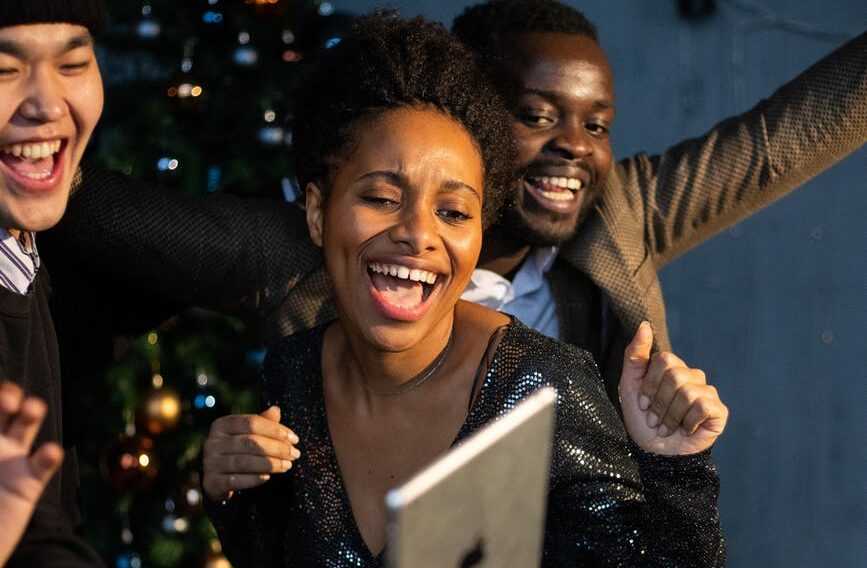BY RALPH BRYANT
I am Caribbean in name only, which is why I call myself a “JaFakin” (aka a fake Jamaican). This is a not-so-subtle nod to my father’s side of the family, who I know through faded Polaroids and passed down recipes. Aside from my love of stew chicken, ganja, and dancehall, I have almost zero connection to my Jamaican heritage. In fact, there are other cultures who come back with a crate full of rum, and a head full of colourful braids who feel more at home in my homeland than I do.
Recently, I began dating an Indo-Caribbean woman from Trinidad and Tobago, and Guyana. On one of our first dates, she took me to a cookout in Niagara Falls. “You know how to dance, right?” she asked, as we pulled into the parking lot.
“Hell, yeah,” I clapped back. As a child of hip-hop and R&B, who was doing the cabbage patch and the running man before she was alive, I was offended.
She spent the night disappointed. I spent the night embarrassed. I couldn’t brace.
For the uninitiated, when a man is incapable of keeping up with the wine demands of his female partner, he can redeem himself by simply standing behind her and being her wall, her rock, so she can wine her heart out. He can be her brace. This is not only true with dancing. For years, our beautiful strong black queens have been the bedrock of our community, stepping into the breach when too many of our men were incapable or uninterested in holding down our family units. Yet, black women have now expanded their “black girl magic” to the rest of culture, at least in North America.
Literally, our sistas pulled the United States back from the brink, restoring the possibility for civility to return to our politics. Leaders such as: Patrisse Cullors, Alicia Garza and Opal Tomet. The leaders of Black Lives Matter, Stacey Abrams of New Georgia, former First Lady Michelle Obama and the current Vice President of the United States, Kamala Harris are adding embers set by freedom fighters. This, of course, is in addition to the five current heads of state in the Caribbean: Paula Mae-Weeks (Trinidad and Tobago), Sandra Mason (Barbados), Lucile Gorge-Wort (Curacao), Cecila La-Grande (Granada), and Susan Dougan, St. Vincent and the Grenadines.
These women, amongst so many others, are no longer asking for a seat at the table; they are doing what uninvited house guests often do; they set up their own table, take a seat, demand for justice, equality and representation. Some men, despite their own success, see this as a problem. They hold on to outdated notions of the role of women, and equally outdated notions of what it means to be a man and what we want from our life partners.
Outside of my role at Toronto Caribbean Newspaper, I also host a podcast called Black Fathers Matter. The show is a conversation that speaks honestly to men in the same way that men gather at the barbershop, counteracting those negative stereotypes and frankly reimagining a world where we live as the Kings we are meant to be.
Recently, Corine La Font, a Trinidad-based PR and Communication Consultant, and host of the podcast, Between The Lines, interviewed me. While talking about this black fatherhood, she demanded “Where are our strong black men ready to stand beside these beautiful black women who are doing all these amazing things?”
Ms. La Font is asking for our black men to brace. To be as strong for them as they are being for the rest of the world.
Black men have long lived under the cliché that we are absent and distant. That we are unable to “handle” the strength of black women, so much so that we step outside our race to date women from other races. We have seen too many Tyler Perry movies that leave us with the “deadbeat dad” cliché – and men have been all too willing to live down to that stereotype.
There is also a massive change – a new generation of black and brown men ready to show the rest of us how to brace. Brothers like: Jay-Z, John Legend, and Dwayne Wade, for example, are three men that have not only embraced bracing for their powerful and accomplished women (Beyonce, Chrissy Teigen, and Gabrielle Union). These kings are being sensitive, vulnerable, while showing us that, like our women, they can both receive support, as well as be a support to the culture. Together, they amplify each other, creating an impenetrable bond that will see both of their efforts. This is what I mean by bracing.
As for my dancing “brace,” let’s just say it’s my work in progress. But if I brace for her in every other way, she may never even notice I can’t dance.

